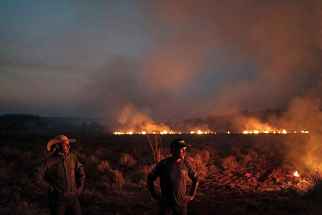Brazil’s president fans flames, tries to extinguish indigenous territories
Read this article for free:
or
Already have an account? Log in here »
To continue reading, please subscribe:
Monthly Digital Subscription
$0 for the first 4 weeks*
- Enjoy unlimited reading on winnipegfreepress.com
- Read the E-Edition, our digital replica newspaper
- Access News Break, our award-winning app
- Play interactive puzzles
*No charge for 4 weeks then price increases to the regular rate of $19.00 plus GST every four weeks. Offer available to new and qualified returning subscribers only. Cancel any time.
Monthly Digital Subscription
$4.75/week*
- Enjoy unlimited reading on winnipegfreepress.com
- Read the E-Edition, our digital replica newspaper
- Access News Break, our award-winning app
- Play interactive puzzles
*Billed as $19 plus GST every four weeks. Cancel any time.
To continue reading, please subscribe:
Add Free Press access to your Brandon Sun subscription for only an additional
$1 for the first 4 weeks*
*Your next subscription payment will increase by $1.00 and you will be charged $16.99 plus GST for four weeks. After four weeks, your payment will increase to $23.99 plus GST every four weeks.
Read unlimited articles for free today:
or
Already have an account? Log in here »
Hey there, time traveller!
This article was published 26/08/2019 (2296 days ago), so information in it may no longer be current.
The world’s lungs are on fire.
And we have to watch them burn.
This year, there have been more than 75,000 fires in Brazil; more than half have been in the Amazon rainforest. That number has been increasing for decades but reached new heights in 2019.
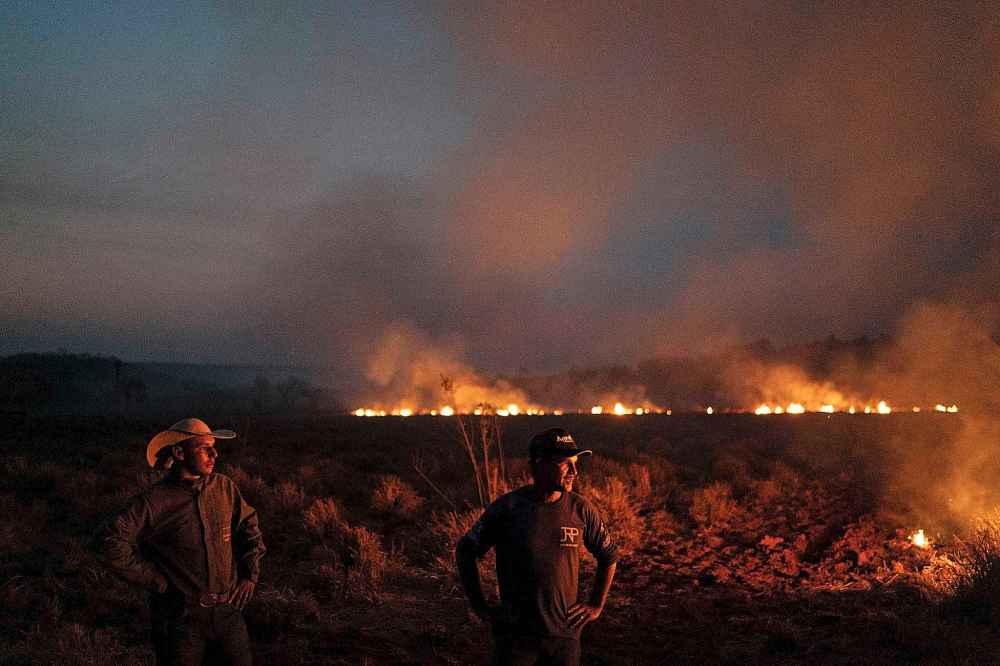
The difference? Brazil President Jair Bolsonaro.
Bolsonaro is right-wing and polarizing, having come to power due to his strong Christian and nationalist views opposing same-sex marriage, abortion, affirmative action, and the legalization of “street” drugs.
Bolsonaro has promised to open up Brazil’s stagnant economy — still recovering from a crippling 2015-16 recession — by allowing mining, agricultural and logging companies unprecedented access to the country’s resources.
His policies and actions have resulted in a race to cut down trees, establish mines, and set fires over huge swaths of the Amazon in an attempt to clear territory for farms.
There has been an 80 per cent increase in rainforest fires alone in 2019. Smoke fills the sky over Sao Paulo and can be seen from space.
The Amazon holds 10 per cent of the world’s animal, fish, and plant species; medicines and are food produced there; it’s a tourist mecca.
But the Amazon’s most important gift is air. Its trees and vegetation absorb 25 five per cent of the world’s carbon dioxide and produce 20 per cent of the world’s oxygen.
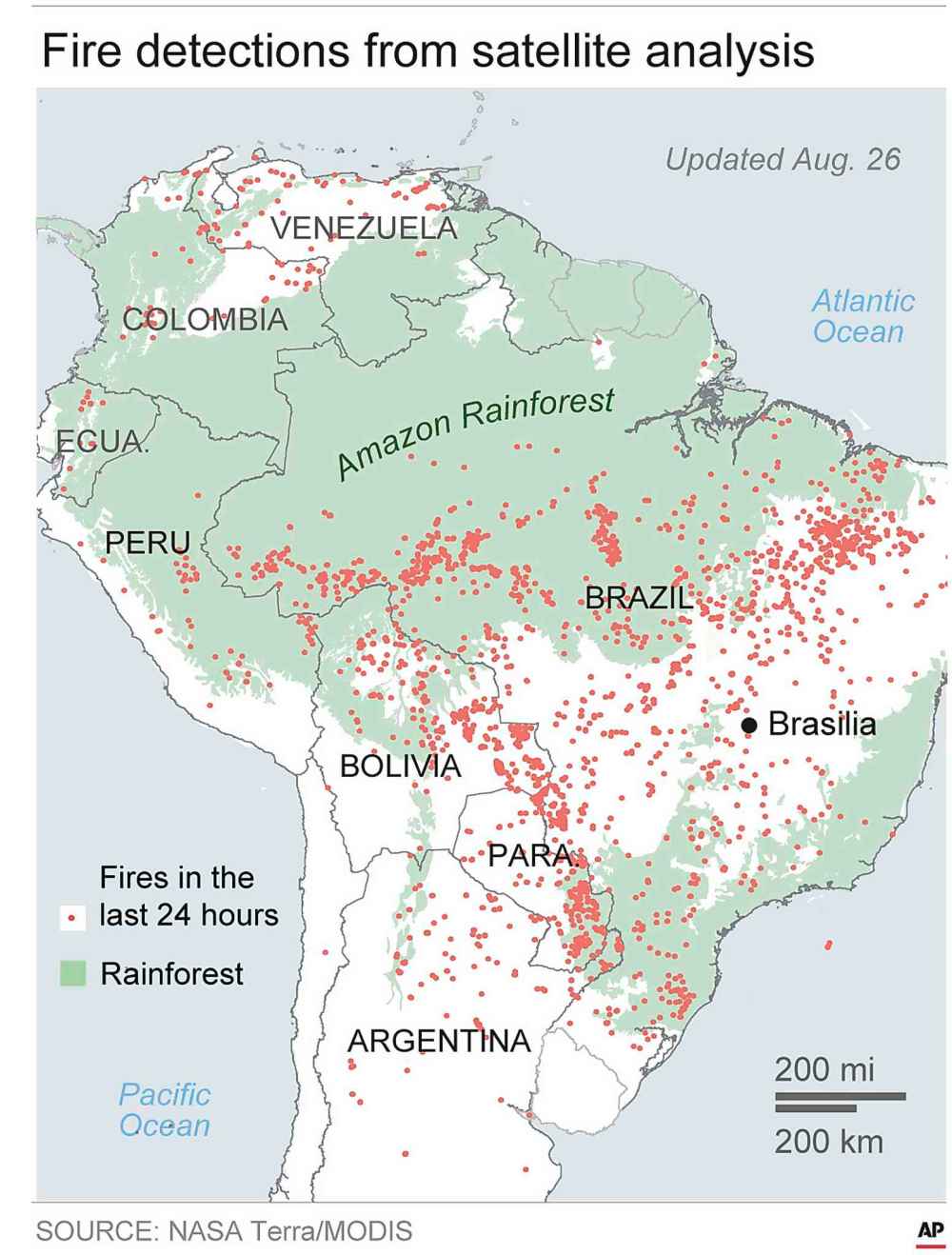
Every minute, a part the size of 1.5 soccer fields is burning.
Whether Bolsonaro is involved with burning the Amazon is unknown (he says he “loves” the region and blames environmentalists for lighting the fires). At the very least, he was doing almost nothing to stop it until public pressure — including the world’s leaders at this week’s G7 meetings — forced him to send in water bombers and the military to fight the blazes.
The president’s response to critics has been to say the fires are “natural,” blaming a global “disinformation” campaign trying to stifle Brazil’s economic growth while ignoring the environmental hypocrisy of other countries. He has engaged in Twitter fights, saying French President Emmanuel Macron is criticizing him because he is jealous of Bolsonaro’s young wife (who is 27 years younger than Bolsonaro, 64).
If all this sounds familiar, it is. Bolsonaro has been nicknamed the “Trump of the Tropics” and is a carbon copy of U.S. President Donald Trump’s style and populist message.
For leaders such as Bolsonaro, Trump, and arguably some Canadian politicians, profit, money, and economy are the only things that matter — at the cost of land, water, and air.
And life, too.
The Amazon is home to more than 400 indigenous communities, comprising around one million people, spanning 13 per cent of the land. Some attend schools, trade, and interact with everyday Brazilians; others refuse contact with outsiders.
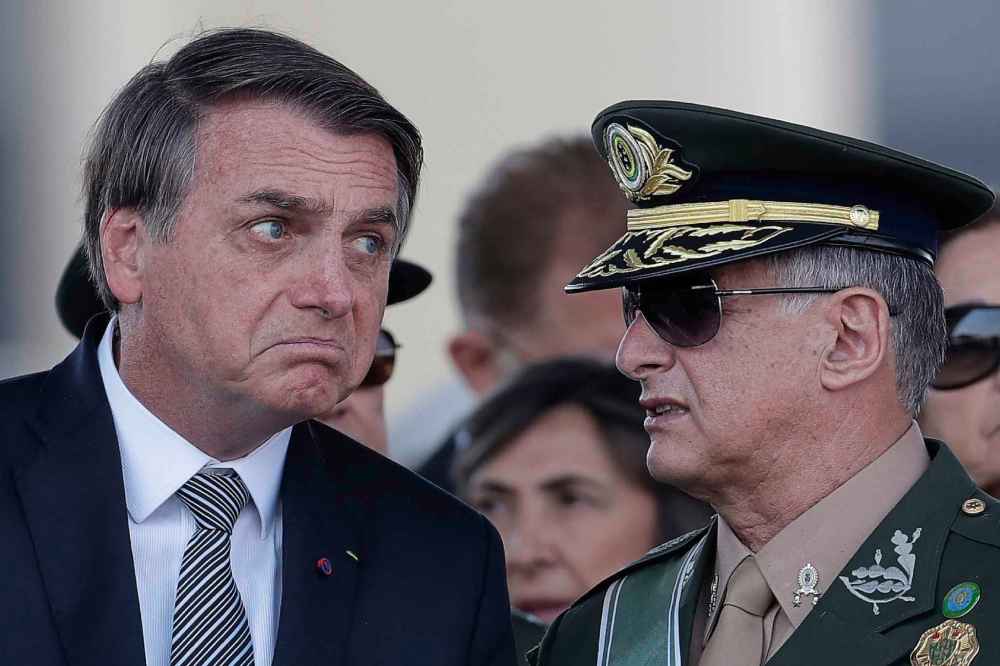
Bolsonaro has called this population insignificant, “isolated from the true Brazil,” and suffering in backwards, archaic societies. He has promised to “integrate these citizens” into Brazilian society, singing the praises of “economic development” and promising jobs to improve the lives of indigenous people.
In an election promise, he said: “If I become president, there will not be a centimetre more of indigenous land.”
In this vein, Bolsonaro has removed protections for indigenous territories by placing land rights under control of the agriculture ministry.
This has all led to a widescale attack by companies, government, and citizens. In the first three months of 2019, according to the non-profit Amazon Watch, there were 14 cases of illegal advancements on indigenous territories. With fires now raging out of control, hundreds of communities are threatened.
Indigenous communities have tried to peacefully resist, organize politically, and lobby the government to protect their homes.
In April, the “Free Land Camp” conference was held in Brasilia. Featuring 4,000 indigenous leaders, Brazil was condemned for refusing to implement the United Nations Declaration on the Rights of Indigenous Peoples and failing to protect indigenous-held lands.
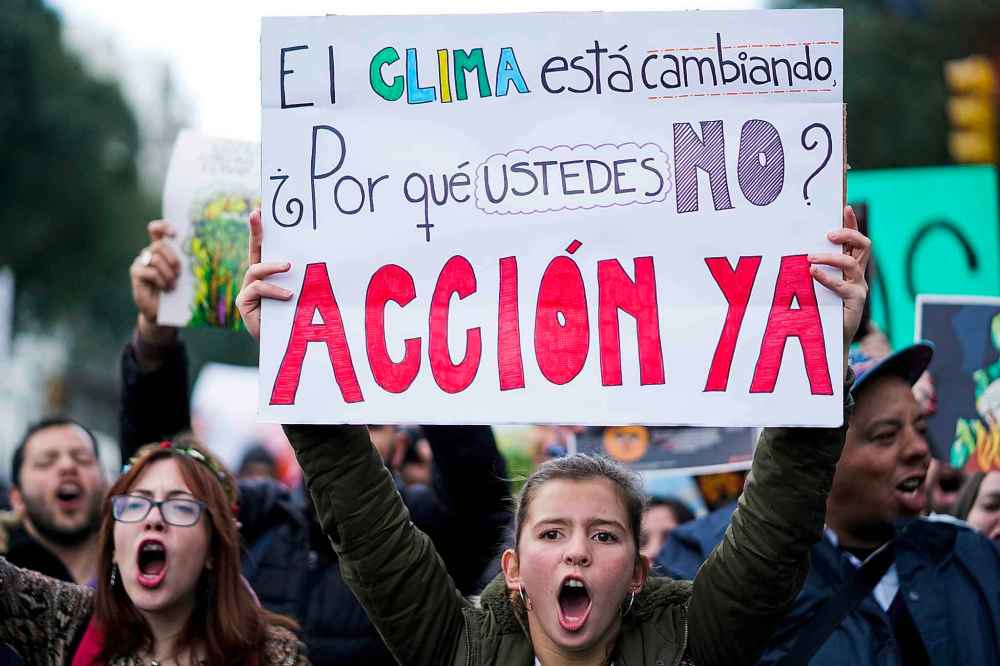
They have reached out to the international community, as well. In May, 600 European scientists and 300 indigenous groups called on the European Union to insist Brazil respect environmental and human rights standards.
Groups such as the Articulation of Brazil’s Indigenous People are organizing protests and non-violent resistance, working with indigenous communities to help protect them.
This has been met with violence.
In July, indigenous leader Emyra Wajapi was stabbed to death by “15 armed invaders” in Amapa, a region in northern Brazil. Wajapi had been a community organizer and vocal critic of Brazil’s policies to steal indigenous lands for mining and farming.
Other communities have been forcibly invaded and attacked. Now, as fires spiral out of control, the only choice left is violent resistance.
Indigenous peoples are being framed as the enemy to Brazil’s future when they are anything but.
It is indigenous peoples fighting for Brazil’s rainforest — and for the land, water and air — by simply demanding their legal right to live their lives.
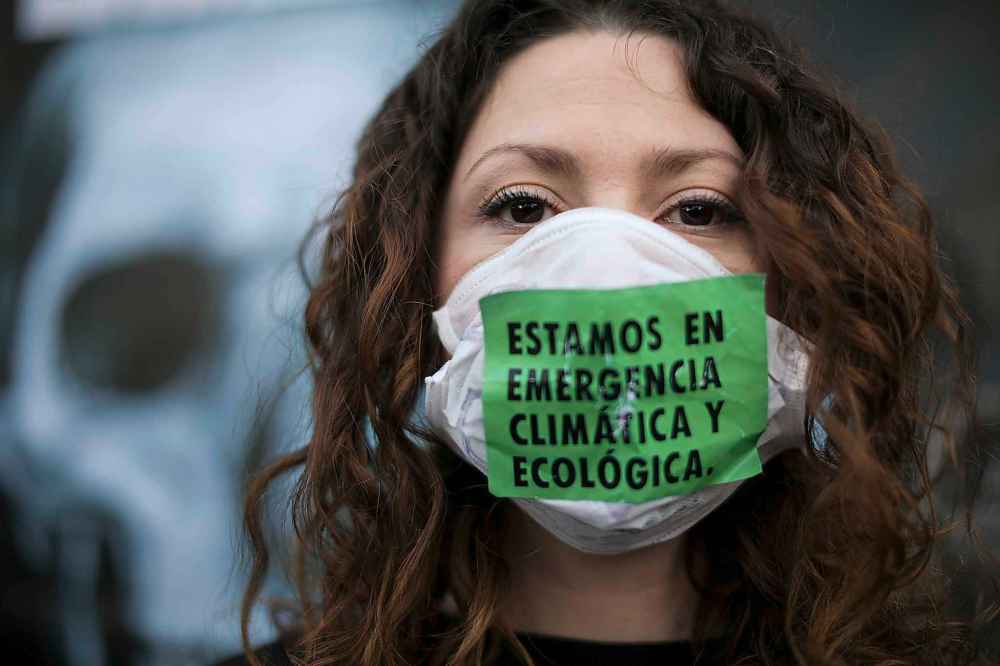
The outcome of these “indigenous rights” is you and I get air to breathe.
As the war against these far-away people rages on, our future is at stake.
niigaan.sinclair@freepress.mb.ca

Niigaan Sinclair is Anishinaabe and is a columnist at the Winnipeg Free Press.
Our newsroom depends on a growing audience of readers to power our journalism. If you are not a paid reader, please consider becoming a subscriber.
Our newsroom depends on its audience of readers to power our journalism. Thank you for your support.
History
Updated on Monday, August 26, 2019 7:52 PM CDT: Fixes typos







